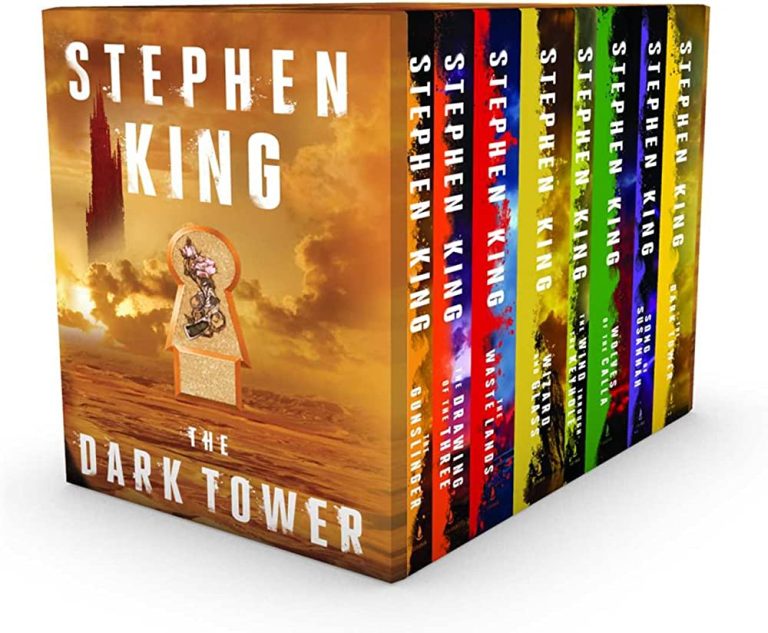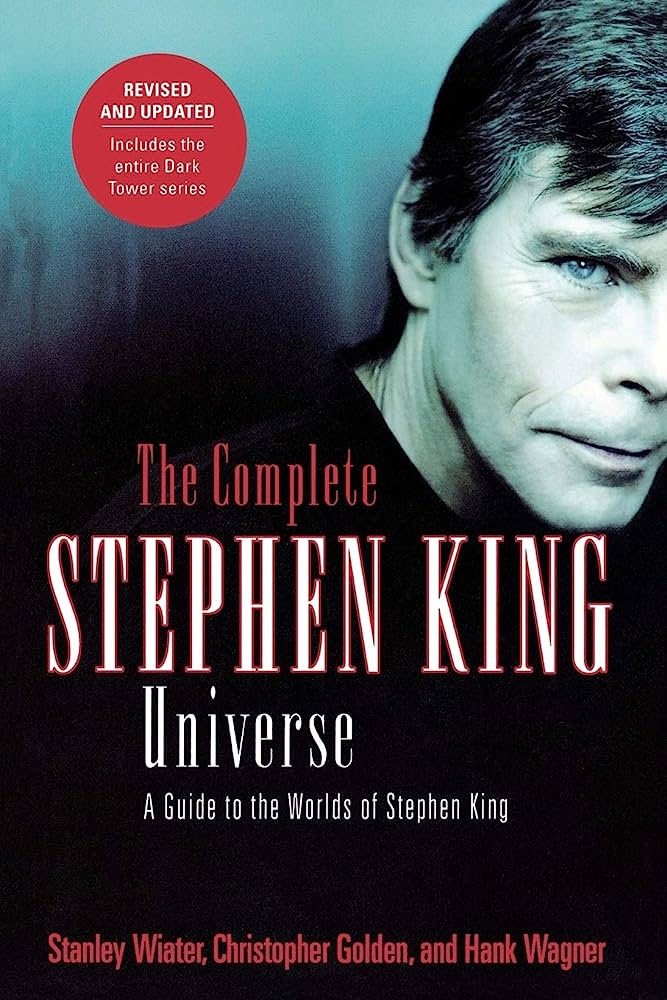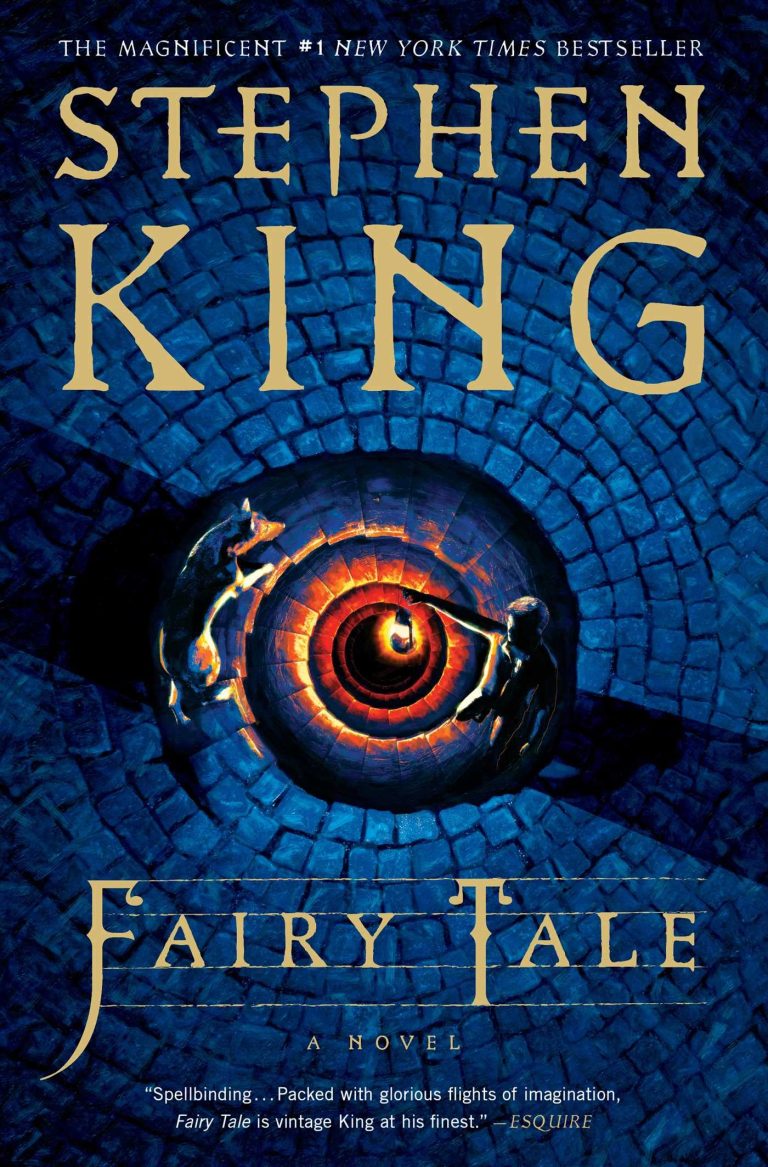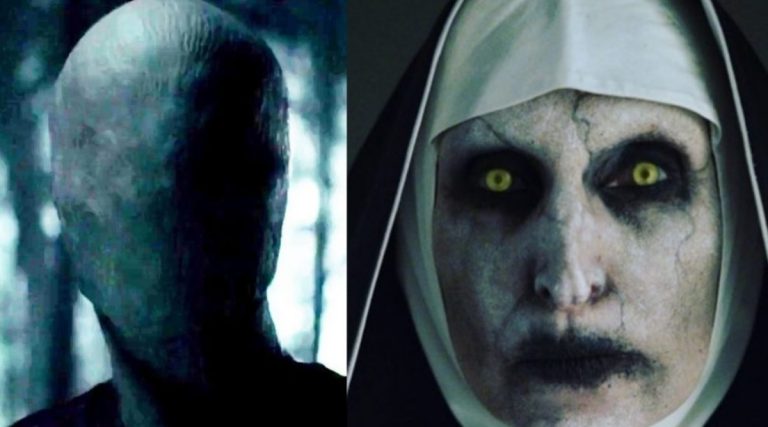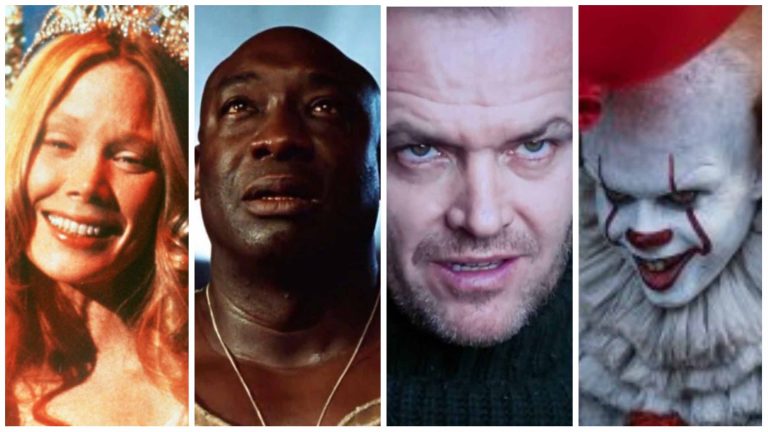Are There Any Stephen King Books With Elements Of Psychological Horror?
Stephen King is a master of horror, known for his ability to send shivers down our spines. But did you know that he also excels in crafting tales of psychological horror? If you’re looking for books that will delve deep into the darkest corners of the human mind, Stephen King has got you covered. In this article, we’ll explore some of his works that contain elements of psychological horror, leaving you captivated and on the edge of your seat.
When it comes to psychological horror, Stephen King is a name that stands tall. His ability to tap into our deepest fears and anxieties is unmatched. From the mind-bending twists of “Misery” to the haunting exploration of a troubled marriage in “Rose Madder,” King’s books are a treasure trove of psychological terror. So, if you’re ready to have your mind twisted and your heart race, let’s dive into the chilling world of Stephen King and discover the books that will keep you up at night. Get ready to be enthralled by his mastery of psychological horror!
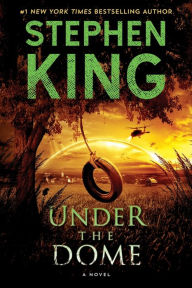
Are there any Stephen King books with elements of psychological horror?
Stephen King is renowned for his captivating and chilling stories that delve into the depths of human psychology. While many of his novels fall into the horror genre, there are several that specifically explore the realm of psychological horror. These books are characterized by their ability to tap into our deepest fears and anxieties, often using the power of the mind to create a sense of terror. In this article, we will explore some of Stephen King’s works that showcase elements of psychological horror, immersing readers in a world where the line between reality and the supernatural becomes blurred.
The Shining: A Haunting Exploration of the Mind
One of Stephen King’s most iconic and acclaimed novels, “The Shining,” is a masterpiece of psychological horror. Set in the isolated Overlook Hotel, the story follows the Torrance family as they become caretakers during the winter months. As the hotel’s dark history begins to reveal itself, Jack Torrance’s descent into madness becomes an intense exploration of the human psyche.
“The Shining” delves into themes of isolation, addiction, and the fragile nature of the human mind. King masterfully portrays the internal struggles of the characters, using supernatural elements to amplify their psychological torment. The Overlook Hotel serves as a metaphorical representation of the characters’ deepest fears and desires, blurring the lines between reality and the supernatural. Through vivid descriptions and haunting imagery, King creates an atmosphere of unease that lingers long after the final page.
In “The Shining,” Stephen King showcases his ability to weave a complex narrative that combines supernatural elements with psychological depth. By exploring the darkest corners of the human mind, he creates a chilling tale that leaves readers questioning their own perceptions of reality.
The Psychological Terror of “Misery”
Another notable work by Stephen King that delves into psychological horror is “Misery.” The novel tells the story of renowned author Paul Sheldon, who finds himself held captive by his self-proclaimed number one fan, Annie Wilkes. As Paul struggles to escape the clutches of his deranged captor, King expertly portrays the psychological torment experienced by both characters.
“Misery” is a gripping exploration of obsession, addiction, and the power dynamics between the captive and captor. Annie Wilkes, with her unpredictable and volatile nature, represents the depths of human darkness. King delves into the psyche of both Paul and Annie, exposing the fragility of the human mind when faced with extreme circumstances.
Through his vivid and visceral descriptions, King creates a palpable sense of dread and fear. The novel is a psychological rollercoaster, with readers feeling the same sense of helplessness and entrapment as Paul. By blurring the line between reality and the twisted fantasies of Annie, King keeps readers on the edge of their seats, captivated by the psychological battle between captor and captive.
In “Misery,” Stephen King proves his mastery of psychological horror, crafting a story that is as terrifying as it is thought-provoking. Through his exploration of the human mind and the depths of obsession, he creates a narrative that stays with readers long after the final page.
The Disturbing Realities of “It”
Stephen King’s epic novel “It” is a sprawling tale that combines elements of horror, coming-of-age, and psychological terror. Set in the town of Derry, Maine, the story follows a group of childhood friends known as the Losers’ Club as they confront an ancient evil that takes the form of Pennywise the Dancing Clown.
“It” is a chilling exploration of fear, trauma, and the power of memory. King expertly weaves together the past and present, delving into the psychological scars left by childhood experiences. The novel delves into the deep-rooted fears and anxieties that haunt the characters, blurring the line between reality and the supernatural.
Through his vivid and detailed descriptions, King creates a sense of unease that permeates the entire narrative. The town of Derry itself becomes a character, representing the hidden horrors lurking beneath the surface of everyday life. By tapping into the collective fears of the Losers’ Club, King immerses readers in a world where the boundaries of reality are constantly shifting.
“It” is a testament to Stephen King’s ability to blend psychological horror with supernatural elements. By delving into the depths of human fear and trauma, he creates a narrative that is as thought-provoking as it is terrifying.
The Psychological Depths of “Gerald’s Game”
In “Gerald’s Game,” Stephen King explores the horrors that can arise from within one’s own mind. The novel follows Jessie Burlingame, who finds herself handcuffed to a bed in an isolated cabin after her husband unexpectedly dies during a BDSM game. As she struggles to free herself, Jessie’s mind begins to unravel, and she is forced to confront her deepest fears and traumas.
King expertly portrays the psychological torment experienced by Jessie, using her isolation and vulnerability to amplify the horror. Through vivid descriptions and introspective narrative, he explores themes of abuse, trauma, and the lasting impact of childhood experiences. As Jessie battles her inner demons, readers are taken on a journey that is both harrowing and deeply introspective.
“Gerald’s Game” is a testament to Stephen King’s ability to create psychological horror that is as unsettling as it is thought-provoking. By delving into the darkest corners of the human mind, he crafts a narrative that leaves readers questioning their own fears and anxieties.
In conclusion, Stephen King has written several books that showcase elements of psychological horror. From the haunting exploration of the mind in “The Shining” to the psychological battles of “Misery,” King’s ability to tap into the depths of human psychology creates narratives that are both terrifying and thought-provoking. Whether it’s the disturbing realities of “It” or the psychological depths of “Gerald’s Game,” King’s works continue to captivate readers with their exploration of the darkest corners of the human mind.
Key Takeaways: Are there any Stephen King books with elements of psychological horror?
- Stephen King is known for his mastery of psychological horror.
- Books like “The Shining” and “Misery” showcase King’s ability to delve into the depths of the human mind.
- Psychological horror elements can be found in “Pet Sematary” and “Gerald’s Game” as well.
- King’s storytelling often explores the fears and anxieties that reside within our own minds.
- If you enjoy psychological horror, Stephen King’s books are a must-read!
Frequently Asked Questions
Here are some frequently asked questions about Stephen King books with elements of psychological horror:
1. Which Stephen King books are known for their psychological horror elements?
Stephen King is well-known for his ability to delve into the depths of the human psyche and create chilling psychological horror. Some of his books that are particularly known for their psychological horror elements include:
– “The Shining”: This iconic novel explores the psychological breakdown of a man who becomes the winter caretaker of a haunted hotel.
– “Misery”: This gripping story follows a famous author who becomes the captive of his biggest fan, leading to a psychological battle for survival.
– “It”: This sprawling epic tells the story of a group of childhood friends who confront an ancient evil that preys on their fears and exploits their darkest secrets.
2. Are there any Stephen King books that focus primarily on psychological horror?
Yes, there are several Stephen King books that primarily focus on psychological horror. One notable example is “Cujo,” which centers around a rabid dog terrorizing a small town and explores the psychological impact it has on the characters involved.
Another book that delves deep into psychological horror is “Gerald’s Game.” The story revolves around a woman who finds herself handcuffed to a bed in an isolated cabin after her husband unexpectedly dies, leading to a harrowing psychological battle for survival.
3. What makes Stephen King’s psychological horror unique?
Stephen King’s psychological horror stands out for its ability to tap into universal fears and anxieties. He creates complex characters who are forced to confront their deepest fears, often in isolated and claustrophobic settings.
Additionally, King’s writing style and attention to detail immerse readers in the psychological states of his characters, making their experiences feel all too real. His ability to blend supernatural elements with psychological terror adds an extra layer of complexity to his stories.
4. Are there any Stephen King books that combine psychological horror with other genres?
Yes, Stephen King often blends psychological horror with other genres, resulting in unique and captivating narratives. One example is “The Dark Tower” series, which combines elements of psychological horror, fantasy, and western.
Another example is “Carrie,” which combines psychological horror with elements of supernatural and coming-of-age storytelling. The story follows a high school girl with telekinetic powers who seeks revenge on her tormentors, exploring themes of isolation, bullying, and the destructive power of anger.
5. Are there any recent Stephen King books that feature psychological horror?
Yes, Stephen King continues to write books that feature psychological horror. One recent example is “The Institute,” which tells the story of children with special abilities who are held captive in a sinister facility. The book explores themes of power, control, and the resilience of the human spirit in the face of psychological manipulation.
Another recent release is “The Outsider,” a gripping tale that blurs the line between psychological horror and crime fiction. The story follows the investigation of a seemingly impossible crime and delves into the psychological toll it takes on the characters involved.
10 Scariest Stephen King Novels
Final Summary: Stephen King’s Psychological Horror
After delving into the captivating world of Stephen King’s novels, it is evident that his mastery of psychological horror is unparalleled. With a keen understanding of human fears and the ability to create chilling atmospheres, King has produced a multitude of books that showcase elements of psychological horror. From the tormenting depths of the human psyche to the haunting supernatural elements that intertwine with reality, King’s works immerse readers in a thrilling and unsettling experience.
One of the standout features of King’s writing is his ability to evoke fear through the exploration of the human mind. In novels such as “The Shining” and “Misery,” he skillfully portrays the psychological breakdown of characters, capturing their descent into madness with vivid and harrowing detail. The internal struggles and twisted thoughts of his protagonists create an atmosphere of unease that lingers long after the final page is turned. These psychological elements, combined with King’s talent for crafting suspenseful narratives, make his books a must-read for fans of the horror genre.
Additionally, King seamlessly blends the psychological with the supernatural, creating a unique blend of terror that keeps readers on the edge of their seats. In works like “It” and “Carrie,” he intertwines elements of the supernatural with the psychological horrors faced by his characters. King’s ability to blur the line between reality and the supernatural adds an extra layer of complexity to his stories, heightening the sense of dread and leaving readers questioning their own perceptions of the world around them.
In conclusion, Stephen King’s books are a treasure trove for those seeking psychological horror. With his unparalleled storytelling skills and ability to tap into our deepest fears, King’s novels provide a chilling and immersive experience. Whether exploring the depths of the human mind or blending the psychological with the supernatural, King’s works continue to captivate readers and solidify his status as the master of psychological horror. So, grab one of his books, prepare to be enthralled, and embark on a journey into the dark recesses of the human psyche.

